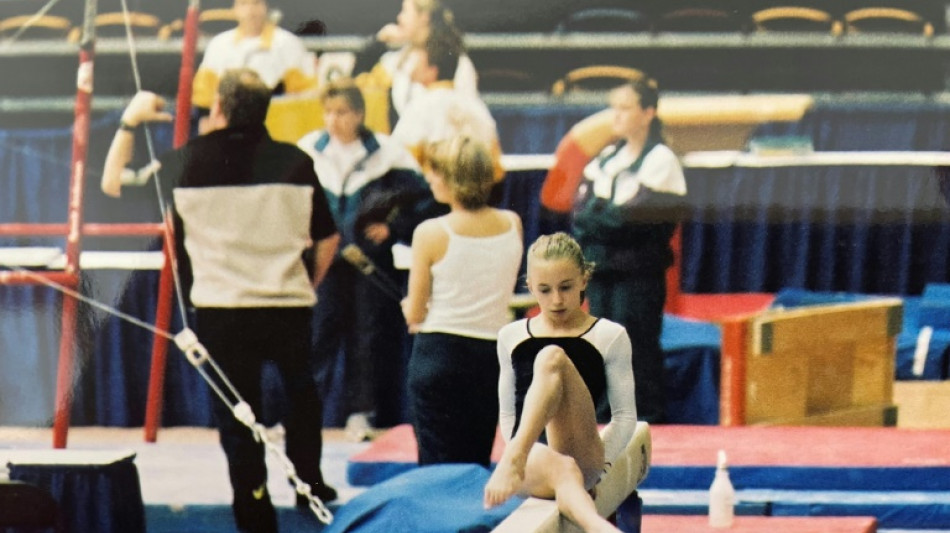
Canada gymnasts break silence on abuses and sport's 'toxic culture'

They excelled in the athletic spotlight, but their feats on the beam and bars masked a darker reality: Canadian gymnasts are taking legal action to denounce a "toxic" culture of physical, sexual and psychological abuse by the sport's top brass.
Having tolerated the harm for decades, victims around the world have come forward in the wake of a US gymnastics scandal that broke in 2015 before spreading abroad, including to Britain where athletes launched a similar legal action last year.
As a child gymnast in Vancouver, Amelia Cline dreamed of Olympic glory. In her teens, the elite athlete devoted thirty hours a week to training.
"Unfortunately the early years of my gymnastics days, as positive as they were, they've been somewhat wiped out by those last three years that were so brutal," the former gymnast, now 32, told AFP.
She and other athletes on Wednesday filed a lawsuit against Gymnastics Canada and several provincial federations for tolerating a climate of abuse and mistreatment for decades.
"The lawsuit is essentially designed to hopefully hold these institutions accountable for systemic psychological, emotional, physical and sexual violence," she said.
At the end of March, a group of more than 70 present and former gymnasts published an open letter to Sports Canada denouncing a "toxic culture and abusive practices that persist within Canadian gymnastics."
The number of signatories has since grown to more than 400, with the group calling for an independent investigation to shed light on the sport's problems.
The "general public really doesn't understand the magnitude of the abuses that are occurring at the gyms," said Kim Shore, a former gymnast and spokeswoman for Gymnast For Change Canada, who says her daughter has also suffered mistreatment in the sport.
Micheline Calmy-Rey, president of the Gymnastics Ethics Foundation created in 2019 in response to the scandal said "it seems logical to us that an independent investigation be conducted."
Gymnastics Canada has not yet responded to a request for comment about the lawsuit by AFP.
- 'Grilled about my weight' -
In a blog post, Cline says that at 14, she weighed 85 pounds (38.5 kg) and was "grilled about my weight on a weekly basis."
Some 20 years after giving up gymnastics, she says she still suffers from the "long-term effects" of mistreatment that left her with chronic pain and made it hard for her to maintain healthy eating habits.
Like many of her peers, she laments a "culture of fear and silence" in gymnastics clubs across the country. "You don't question what (the coaches) are doing. They're the experts, and they're the ones who are going to take you to the Olympics," she explained.
"I was always afraid of my coaches," another gymnast told AFP on condition of anonymity. "I loved gymnastics. I loved travelling. I loved being with the other girls, but I was so afraid of them."
She described a powerful loneliness felt by child gymnasts, whose parents were often banned from practices. Very young athletes were even told never to speak about their training.
"Many times the kids are told what happens in the gym stays in the gym," recalled Shore.
She says gymnastics has been corrupted by a "culture of control and dominance" over athletes.
"The provincial bodies are made up of individuals who are conflicted," she said, explaining that "in some provinces, the chair of the board is also the head coach of a gymnastics club."
Now that a claim has been filed and the problems have been exposed, Cline and her lawyers believe that the number of plaintiffs will increase "significantly."
Cline just wishes her nightmare will never be experienced by other young gymnasts.
"There's really no other mechanism within Canada to actually hold institutions like this accountable except through the legal system," she said.
(W.Uljanov--DTZ)
